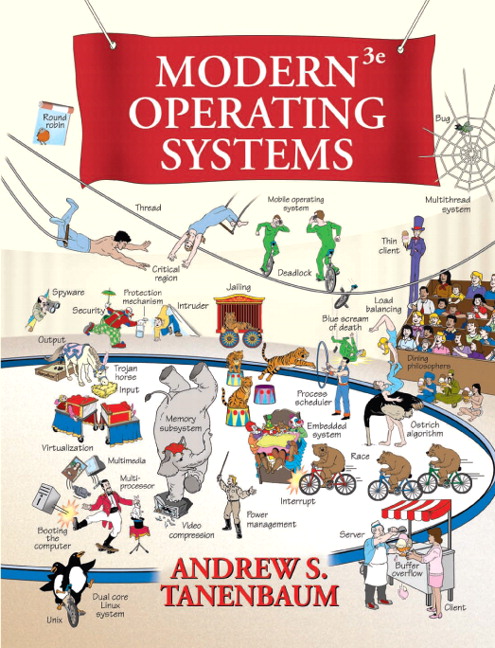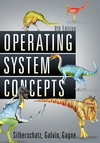
|
TIME |
MONDAY |
TUESDAY |
WEDNESDAY |
Contents |
|
|---|---|---|---|---|---|
|
8:40 - 10:30 |
|
|
|
||
|
10:40-12:30 |
|
|
|
||
|
12:40-14:30 |
CENG328(T1) A-319 |
CENG328(T2) B-301 |
OFFICE HOURS |
||
|
14:40-16:30 |
CENG328(L1) MPLab |
CENG328(L2) MPLab |
|
||
Instructoroffice: Computer Engineering Department, A-318 |
TASibel Tarıyan Özyer office:Computer Engineering Department, A-229R |
Watch this space for the latest updates (If the characters do not show properly, please try viewing this page with Unicode (UTF-8) encoding). Last updated:
Çoşkun Yumuş
Kemal Ceyhun Güngör
Emre Aşlakçı
The lecture notes for the second week will be published soon, see Course Schedule section.
The tutorial link is active.
For laboratory studies, we will study C codes and students will be encouraged to programming for concepts presented in the class. There will be assignments to be graded in the following laboratory session.
Anyone wants to get a live cd without installing linux, download from local server or may ask to room 308.
Ceng 328 is intended as a general introduction to the techniques used to implement operating systems and related kinds of systems software. Among the topics covered will be;
basic operating system structure
process and thread synchronization
process scheduling and resource management
process management (creation, synchronization, and communication);
memory management techniques, main-memory management, virtual memory management
file-system structure
control of disks and other input/output devices;
deadlock prevention, avoidance, and recovery.
This course assumes familiarity with basic computer organization (e.g., processors, memory, and I/O devices). You will need to be able to program in C ( or Java / C++) to perform the assignments in the course.
There are two groups for lecturing and two groups for lab sessions, you may attend any one of the lecture hours but not for lab sessions. Please attend your predefined lab sessions regularly. Your sits in the lab will not be changed there after. The UNIX operating system will be introduced to you first in the lab sessions , later some C codes will be executed to study the operating system features and you will be responsible for writing codes, to be graded.
You MAY have a quiz (10 minutes) for the previos week's subjects. There won't be any make-up for these quizes and they will have weight for the final grading. We have a pop-up quiz policy.
Important announcements will be posted to the Announcements section of this web page above, so please check this page frequently. You are responsible for all such announcements, as well as announcements made in lecture.
OPERATING SYSTEMS LABORATORY III - Additional Assignment for C Review
OPERATING SYSTEMS LABORATORY V - Additional Thread Exercises:
OPERATING SYSTEMS LABORATORY VI - Synchronization, Critical Section, InterProcessCommunications I
OPERATING SYSTEMS LABORATORY VII Additional - InterProcessCommunications II
Readings will be assigned in Modern Operating Systems, 3rd Edition by Andrew S. Tanenbaum, Prentice Hall, 2008.

Another frequently used text book that covers the same material with a different approach is Operating System Concepts, 8th Edition by Abraham Silberschatz, Peter Baer Galvin, Greg Gagne, John Wiley and Sons, January 2008.
This text is only recommended rather than required. This book is useful for reference, for an alternative point of view.

There will be a midterm and a final exam, will count 20% and 40% of your grade, respectively.
Quiz: 15%
Lab: 15% (worst of the labs will be discarded)
Attendance is required and constitutes part of your course grade; 10%
Attendance is not compulsory, but you are responsible for everything said in class.
I encourage you to ask questions in class. You are supposed to ask questions. Don't guess, ask a question!
You may discuss homework problems with classmates (although it is not to your advantage to do so).
You can use ideas from the literature (with proper citation).
You can use anything from the textbook/notes.
The code you submit must be written completely by you.
The following schedule is tentative; it may be updated later in the semester, so check back here frequently.
|
Week |
Dates |
Topic |
Quizes |
Laboratory Studies |
|||||
|---|---|---|---|---|---|---|---|---|---|
|
Lectures |
|||||||||
|
1 |
February 16-20, 2009 |
First Meeting |
NA |
||||||
|
2 |
February 23-27, 2009 |
NA |
|||||||
|
3 |
March 2-6, 2009 |
NA |
|||||||
|
4 |
March 9-13, 2009 |
NA |
|||||||
|
5 |
March 16-20, 2009 |
||||||||
|
6 |
March 23-27, 2009 |
||||||||
|
8 |
April 6-10, 2009 |
NA |
|||||||
|
9 |
April 13-17, 2009 |
NA |
|||||||
|
10 |
April 20-24, 2009 |
||||||||
|
11 |
April 27-1, 2009 |
NA |
|||||||
|
12 |
May 4-8, 2009 |
NA |
|||||||
|
13 |
May 11-15, 2009 |
NA |
|||||||
|
14 |
May 18-22, 2009 |
Recitation |
|||||||
|
Exams |
|||||||||
|
7 |
April 2, 2009 Thursday 16:40 - 18:30 B-417-415 |
||||||||
|
15 |
June 09, 2009 Tuesday 15:00-17:00 B307-308 |
||||||||